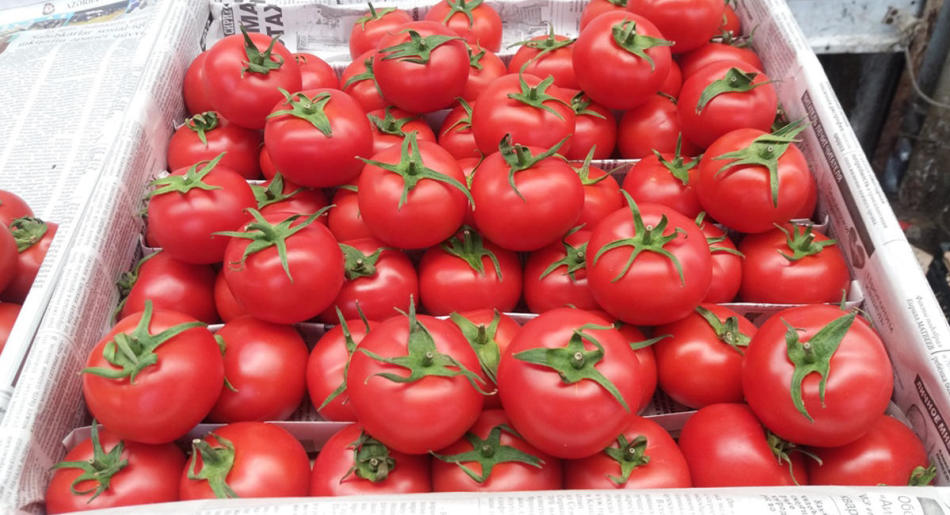In this article, we will learn how to correctly bow the word tomatoes and competently enter the word into sentences.
Content
The Russian language is considered one of the most difficult in the world. Indeed, in our speech a variety of turns, cases, declining, stable literary and formal expressions are used. It is worth noting that the vocabulary of the Russian language is much larger than English or German. However, often citizens of our state do not adhere to the rules of literary speech, using words in wrong cases, and sometimes completely ignoring the declension.
How to say correctly, write: a lot, a box, several, 1 kg, a salad of ripe tomatoes or tomatoes?
When declining the names of vegetables in colloquial speech, many of us make mistakes. Particularly often use non -literary expressions to indicate their plural. To understand how grammatically it is necessary to use the words “tomato”, “tomatoes” you need to know the following:
- The word "tomato" can be used in different cases, but for its use in the plural and in the nominative case, it is necessary to use the word "tomatoes".
- In the genitive, dative, cunning, creative and prepositional cases, the following words are used: tomatoes, tomatoes, tomatoes, tomatoes, tomatoes, respectively.
Analyzing the above information, it is necessary to note the declension of words in different cases. They are grammatically stable, so they cannot be changed. For example, using the phrase “several tomatoes” we lose the logical meaning of what has been said. After all, “somewhat” indicates the plural, and the “tomato” is the only one. Therefore, when declining 2 or more words, each of them must correspond to one case.

Now, by example, we will consider how to write and say different words with the word “tomatoes” correctly. For example, take the words “a lot”, “box”, “several”, “1 kg”, and the phrase “ripe salad”:
- To understand in which case you need to use the word “tomatoes” and how it will sound correctly, we ask a question to it, using the above words: “A lot, box, etc. (Who? What?) "
- These issues correspond to the genitive case
- Next, we will analyze the word "tomato" a little. This word is a masculine noun, which in the initial form ends with a firm consonant. For such words, there is a spelling rule, according to which, the word “tomato” in the genitive case, the plural sounds and is written as “tomatoes”
- Therefore, speak and write correctly A box of tomatoes, a lot of tomatoes, 1 kg of tomatoes, a salad of ripe tomatoes, several tomatoes.
Tomatoes in the genitive case, plural: how is it written?
On many forums and thematic blogs, summer residents and professional gardeners are actively divided by knowledge and experience in growing and care of tomatoes. Such an extensive amount of information helps to get a quality crop as soon as possible, as well as protect the plants from diseases.
However, often bloggers and visitors to such sites use incorrect forms to designate tomatoes in the genitive case. In order to forever finish with stylistic and grammatical errors, it is necessary to remember a number of simple writing rules:
- The word "tomato", as well as "tomato" is used to designate the vegetable in the singular, in the nominative case. For example, “a tomato lies on the table”, etc.
- The words "tomatoes" and "tomatoes" are used to indicate the plural, nominative case. For example, "delicious tomatoes"
- In the genitive case, the plural, the word "tomatoes" sounds and is written as "tomatoes"

Also, for the competent use of these words, the following factors must be taken into account:
- The word "tomatoes" can be called not only vegetable fruits, but also bushes
- When designating the variety, the word "tomato" or "tomatoes" is preliminarily used
- Depending on the general logical meaning of the sentence, these words can be used in other cases
- The words "tomatoes" and "tomatoes" are synonyms, therefore, when building a sentence, it is enough to use one of them
The word "tomatoes" - declination by cases in the plural: Example
The word "tomatoes" is used to determine this vegetable in the plural. However, its competent application plays an important role in the concept of the general meaning and style of the sentence. That is why such an important role in the language is the correct use of one or another case for a given word. The word "tomatoes" in different cases looks as follows:
- IN nominative: tomatoes. Example: "Tomatoes are your favorite vegetables of many people"
- IN genitive: tomatoes. Example: "This year, all gardeners have gathered a rich tomato crop"
- IN dutling: tomatoes. Example: "It is very important to ensure the right conditions to tomatoes"
- IN vinative: tomatoes. Example: "Our family loves tomatoes very much"
- In the creative: tomatoes. Example: "This year we provided ourselves with tomatoes"
- In the prepositional: about tomatoes. Example: "Today we will talk about tomatoes and their properties"
To be competent and use words correctly, you do not have to have a higher education. It is enough to understand the rules for the use of cases, as well as the declension of certain words, based on the general meaning and style of the sentence. After all, the correct and literary-painted speech not only increases the reputation and status of a person in the eyes of others, but also identifies him as a wise and spiritual. After all, the language is the personal genetic code of the nation, which must be honored, developed and transmitted to the next generation, despite the speed of time.







